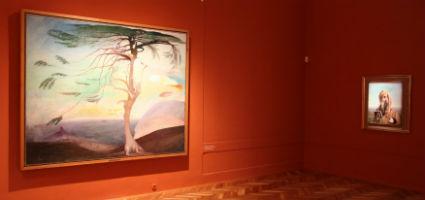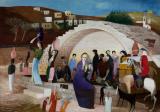2025. July 19. Saturday
Janus Pannonius Museum - Csontváry Museum - Pécs
 |
Address: 7621, Pécs Janus Pannonius utca 11.
Phone number: (72) 310-544
E-mail: jpm@jpm.hu
Opening hours: Tue-Sun 10-18
|
The permanent exhibition of the works of Tivadar Csontváry Kosztka (1853-1919) have been on display in this neo-renaissance building since 1973.
The solitary talent of the turn of this century artist, originally a pharmacist, is the most prominent representative of plen-air. In his oeuvre there are early study drawings, portraits (Maroccan teacher), Bible related paintings (At the entrance of the wailing wall in Jerusalem 1904, Mary's well in Nazareth 1908) historical pieces (Zrínyi's last sally 1903) and landscapes View of Selmecbánya 1902, Storm on the Great Hortobágy 1903) as well.
The solitary talent of the turn of this century artist, originally a pharmacist, is the most prominent representative of plen-air. In his oeuvre there are early study drawings, portraits (Maroccan teacher), Bible related paintings (At the entrance of the wailing wall in Jerusalem 1904, Mary's well in Nazareth 1908) historical pieces (Zrínyi's last sally 1903) and landscapes View of Selmecbánya 1902, Storm on the Great Hortobágy 1903) as well.
